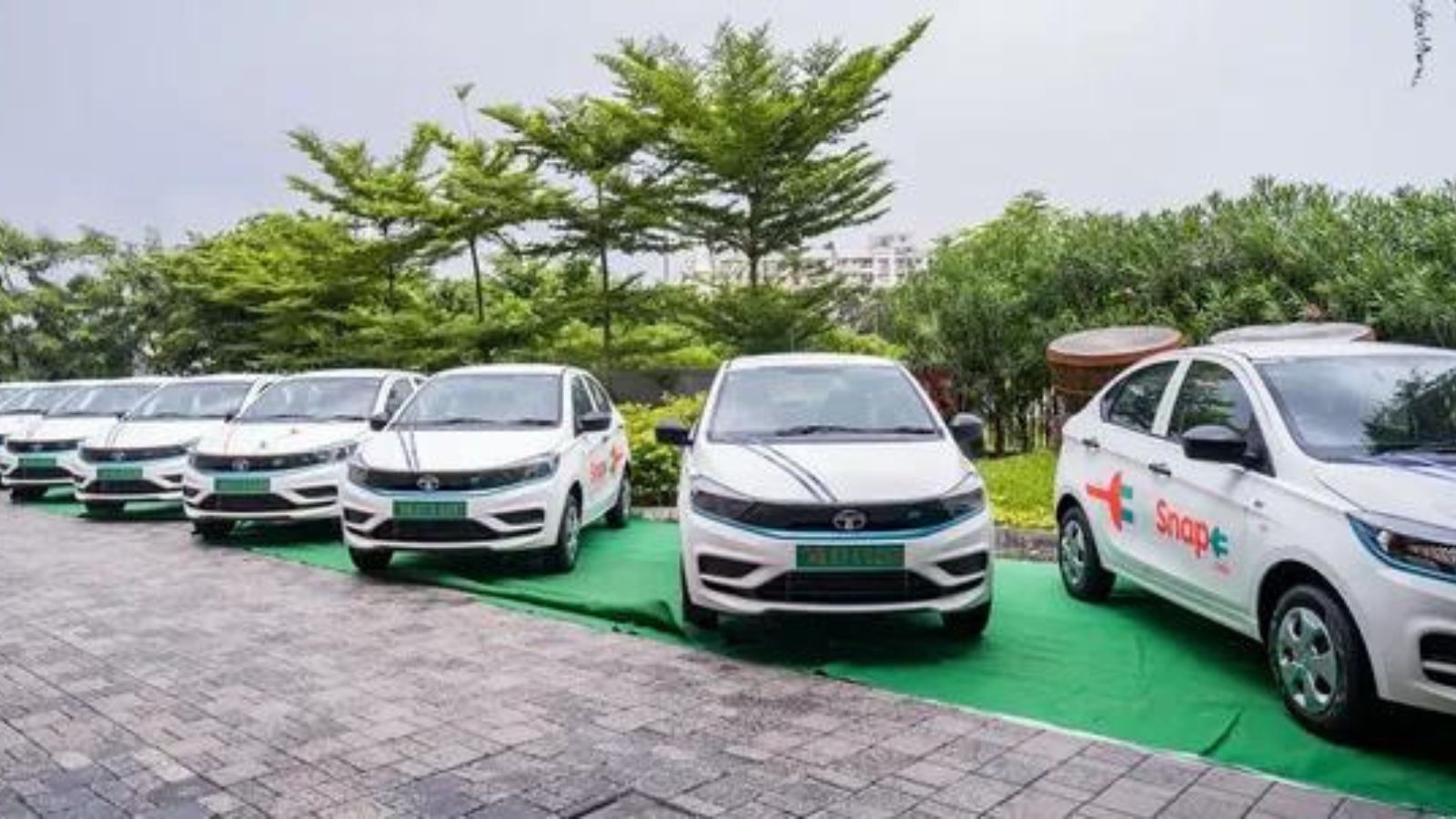In Kolkata, most people choose to commute in the recognizable yellow Ambassador taxis. But these days, ride-hailing services are stealing market share from the city’s taxi industry.
Because to its high levels of vehicle emissions, the “City of Joy” is one among the top five largest cities in India with the worst air quality. In 2022, the US-based Health Effects Institute (HEI) published a research stating that the yearly average PM2.5 concentration in the air in Kolkata was 84g/m3, which is 17 times higher than the WHO’s recommended safe level of 5g/m3.
In August 2022, Kolkata resident Mayank Bindal created Snap-E Cabs, seeing this as a chance to disrupt. With a fleet of more than 600 Tata Tigors, the on-demand electric ride-hailing company hopes to become Kolkata’s first unicorn.
With the assistance of ICICI Bank, HDFC Bank, Mahindra & Mahindra Finance, and Mufin Green Finance, the organization has leased these cars. When the lease expires, it also has the option to buy them.
Bindal used his background as the previous chief of operations at Steelman Telecom Ltd., a telecom infrastructure provider listed on the BSE, to launch Kolkata’s first EV charging network. But he quickly changed course after realizing the enormous potential in the electric ride-hailing market.
The entrepreneur said that doing this would guarantee full use of the charging assets he intended to set up later and generate some more cash. Snap-E Cabs purchased 100 Tata Tigor EVs in 2022 and put them on Uber. Bindal built Snap-E’s own app after getting some experience and generating early operating revenue.
“With regard to the Snap-E application, we’ve undergone several pivots. We launched the Snap-E app in October 2022 after working for Uber for two months, Bindal tells YourStory.
The inventor claims that there were numerous flaws in the initial software, which was created by a boutique studio in Coimbatore. After realizing the app wouldn’t function for them forty days later, the team decided to use JungleWorks’ hyperlocal delivery stack, a no-code software solutions provider.
Snap-E Cabs saw high demand within a month of its October 2022 launch—more than 30,000 downloads in just two weeks. It is currently available on the Apple App Store and has received over a million downloads on Google Play Store. “We are well on track to meet our deadline of introducing the new app by the end of March,” he continues.
Fleet services
“We started building our team and our app in August of last year, when we became confident about our operations and strategy,” Bindal explains, revealing that Snap-E Cabs employs 600 drivers and roughly 60 employees.
Currently, the company completes about 2,500 rides per day and earns Rs 70,000 on average every car per month. According to Bindal, a 2.5 mile ride on Snap-E would cost between Rs. 10 and Rs. 15 less than a gas car reserved on Uber.
He said the EV ride-hailing business, which is bootstrapped, makes more than Rs 2 crore a month. With an annual recurring revenue (ARR) of Rs 35 crore, it intends to end FY24.
In order to ensure that the taxis are not empty, the firm has also partnered with a number of MNCs in Kolkata to transport personnel. The corporation has been able to maximize revenue per automobile thanks to this method.
In contrast to Ola or Uber, which can have problems like broken air conditioning or unattractive interiors, the company guarantees that the quality of its vehicles is always the same. In fact, as the cars get older and the lithium batteries degrade and lose some of their effectiveness, the corporation intends to work with EV companies to get new batteries for its fleet.
Charging infrastructure
Asset utilization, both for the cabs and the charging network, is highly valued by Bindal. Snap-E Cabs partners with charge point operators, such as Jio BP, to meet its charging requirements and agrees to a minimum utilization on their infrastructure. Following a feasibility study to see whether there is profitability per unit, these providers move on with the construction of a charging station reserved for Snap-E taxis.
Currently, the business operates an exclusive network in Kolkata with more than 700 charging stations. It also gets a lot of bids from other parties, such state government agencies, to use its infrastructure for billing.
Funding
Steelman Telecom, Bindal’s father Mahendra Bindal’s former company, provided technological skills and advice to Snap-E Cabs, which was bootstrapped with an amount of Rs 22 crore.
The business raised $2.5 million in a pre-Series A financing in February of last year, spearheaded by Inflection Point Ventures, with the goal of enhancing the platform’s core technology and expanding into additional Indian regions.
The India taxi market is predicted by Mordor Intelligence to be worth $20.61 billion in 2024 and expand at a compound annual growth rate (CAGR) of 13.55% to reach $38.90 billion by 2029.
Although there isn’t much competition for Snap-E in Kolkata, its market domination could be challenged by the possible arrival of rivals like Blu Smart, an on-demand electric vehicle startup based in Gurugram with a stronger integration with the clean tech industry. On the other hand, the founder thinks that the on-demand taxi industry will grow more regional, with various firms controlling particular areas.




 No products in the cart.
No products in the cart.